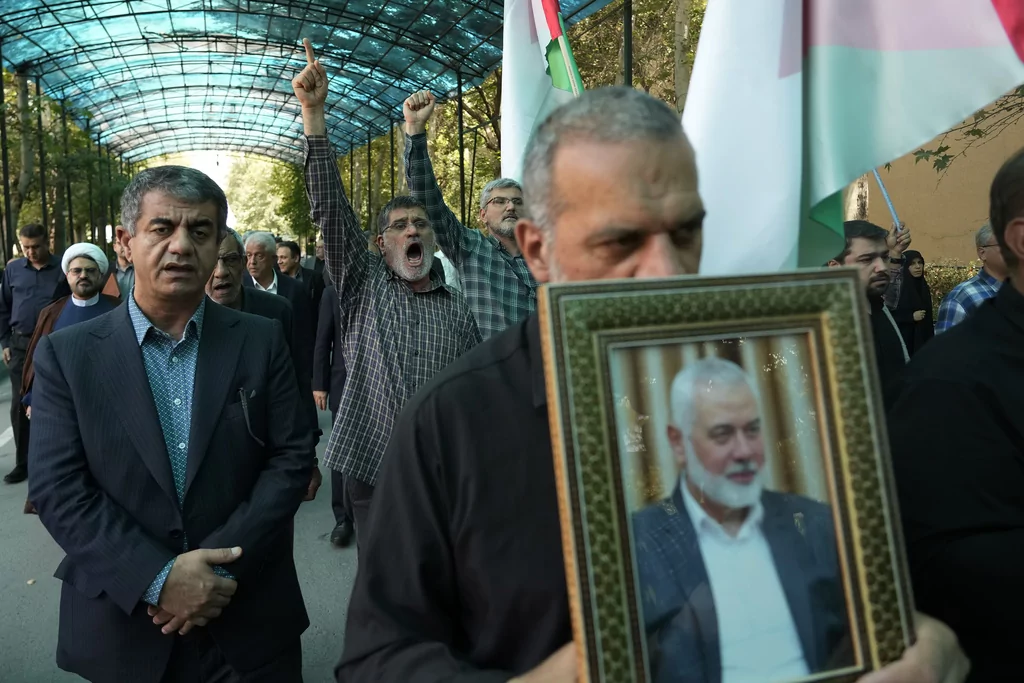

The White House announced new defensive military deployments to help Israel defend itself ahead of an expected retaliatory attack from Iran and/or its proxies elsewhere in the region.
President Joe Biden and Vice President Kamala Harris spoke with Israeli Prime Minister Benjamin Netanyahu on Thursday, during which the president “discussed efforts to support Israel’s defense against threats, including against ballistic missiles and drones, to include new defensive U.S. military deployments,” according to a readout of the call.
Iran has vowed to respond to two presumed Israeli assassinations that occurred this week.
The first was the killing of Hezbollah commander Fuad Shukr in Beirut, who the Israelis said was responsible for an attack in the Golan Heights about a week ago that left a dozen teenagers dead. Israel was expected to respond to that attack.
About 24 hours later, Hamas’s political leader, Ismail Haniyeh, was killed in an unexpected explosion in Tehran, Iran, during his visit to celebrate the president’s inauguration. Israel has not confirmed its responsibility for the assassination, though it doesn’t usually for covert operations that take place on foreign soil.
The bomb that killed Haniyeh was planted months in advance in the room he stayed in during previous visits. His assassination, in a building that is guarded by the Islamic Revolutionary Guard Corps, is widely viewed as a massive security failure and an embarrassment to the regime.
Iran is considering how to respond to the attack, though they have waited several days and broadcast that they intend to respond, giving Israel the time to prepare its defenses, which allies such as the United States have helped with. Foreign countries have also begun urging their civilians to leave Lebanon.
Iran has a number of proxy forces in the region that have all attacked Israel in some way since Hamas’s Oct. 7 attack that pivoted the region into a powder keg. Hamas has been largely degraded through nearly ten months of war, including the killing of two of its senior leaders, one of whom was Haniyeh and the other Mohammed Deif, while Hezbollah, the Lebanese-based terrorist group, has engaged in a limited conflict that largely has been confined to cross-border fires from northern Israel into southern Lebanon and visa versa.
The tick-tock of events is similar to those in early April when Israel carried out a strike on an Iranian Consulate in Syria that killed a senior Iranian commander and other senior IRGC. After that occurred, the Iranians waited a couple of days before launching an unprecedented number of rockets, missiles, and drones at Israel from several locations.
The Israelis, with the help of several allies, including the U.S. and the United Kingdom, were able to intercept nearly all of the projectiles, significantly limiting the damage.
On Thursday, Israeli Defense Minister Yoav Gallant met with his British counterpart, U.K. Secretary of State for Defense John Healey.
CLICK HERE TO READ MORE FROM THE WASHINGTON EXAMINER
Gallant “expressed his appreciation to the Secretary for Britain’s ongoing support for Israel’s right to self-defense, and the important defense cooperation that took place when Israel was under attack in April,” the Defense Ministry said.
On Tuesday, before Haniyeh was killed, U.S. Secretary of Defense Lloyd Austin reiterated that “if Israel is attacked” by Hezbollah, similar to Iran’s unprecedented attack in April, “yes, we will help to — help Israel defend itself.”






